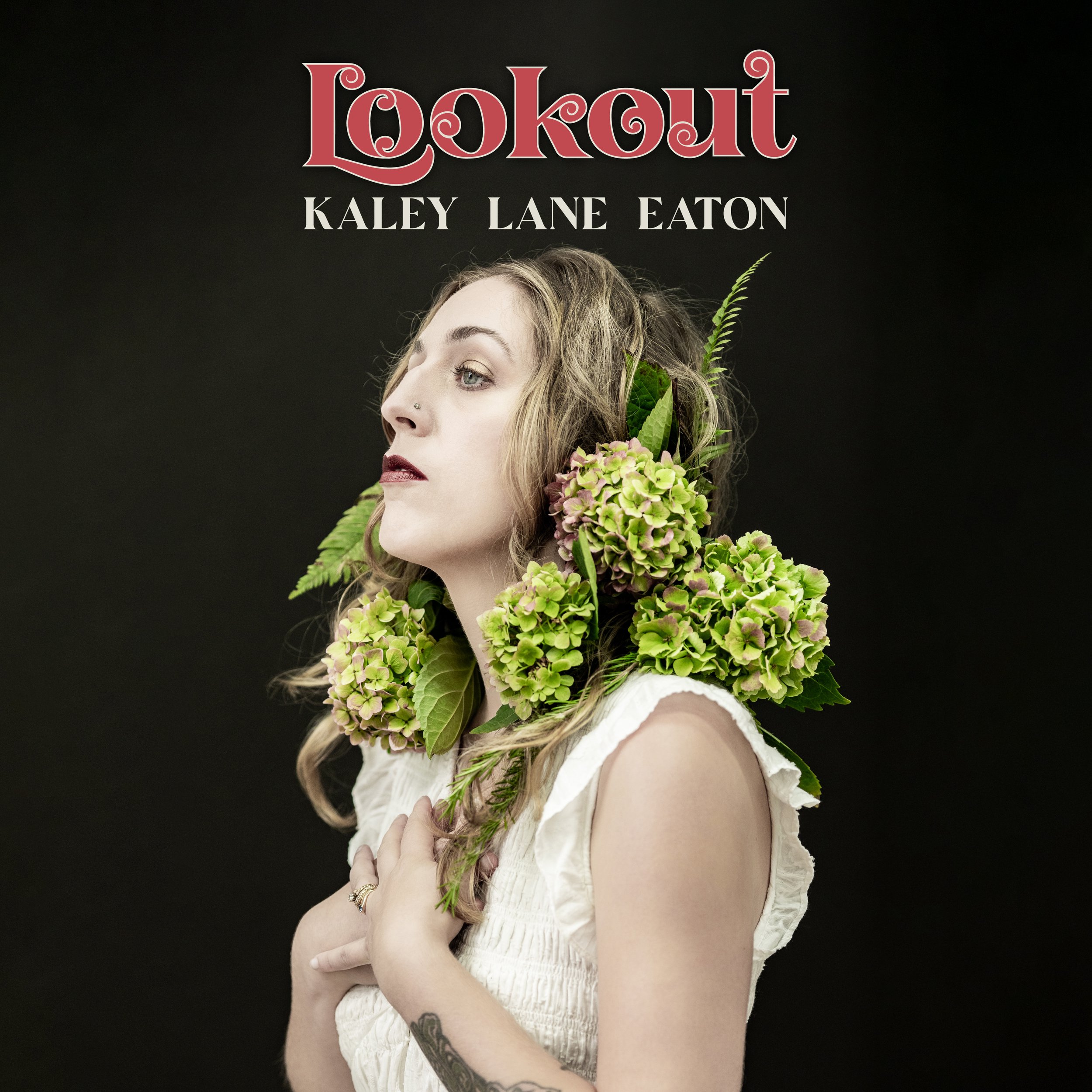About
Avante-garde classical composer? Freak-folk singer-songwriter? Postmodern jazz interloper?
For artists like Kaley Lane Eaton who paint outside the lines, there are seemingly endless boxes to check, but few name-brand comparisons. Joni Mitchell, Björk, Kate Bush, Laurie Anderson.
From a young age, Eaton learned from her mother to not choose between her musical passions. She studied everything from piano concertos to guitar to vocals. And it shows. The boxes aren’t big enough to encapsulate everything in her music. Nor small enough.
On her latest album Lookout, Eaton regularly makes pressure-testing trips from the vast cosmos down to the particular details of home in the Pacific Northwest. In her words, “It’s a behemoth.” From the ever-expanding space of jazz cymbals, flute, and harp, down to the folksy pluck of her banjo — a prized recent acquisition — and the grounding chords of her great-great-great grandmother's piano, which shipped up the Missouri River to the family homestead in Montana.
There are no electronic instruments to be found here, but many trees. The sequoia on the hillside, aspens quaking, cedar, and Jeffrey pine.
With her experience in electronic music, Eaton’s choice to exclude digital instruments from the palette is immediately felt. It’s not that technology doesn’t exist here. It’s a conscious focus on human beings with time-tested tools. Ancient technology.
The feeling is akin to the English band Talk Talk abandoning their synthesizers for experimental pastures. It’s a tradition, passed down in bands like Radiohead and Fever Ray, and it continues here. For example, in the gothic soul and Dixieland jazz chaos of Eaton’s “Expectation.”
She shares space with other artists who dance between the natural and spiritual worlds: Sufjan Stevens, Weyes Blood, and Eaton’s most potent (but unstreamable) muse, Joanna Newsom. The classically trained harpist’s spirit rides throughout the album, from the galloping chorus of “Jeffrey Pine” to the Laurel Canyon lilt of “The End of the Line.”
Like Newsom, Eaton still refuses to choose a lane. She composes with the full command of her four music degrees and classical training, but there’s an American-ness that can’t be shaken on Lookout. A sorrow, wildness, and expansiveness, not of the European classical tradition, but of jazz, blues and folk. Kaley Lane Eaton is all of these things and more. And none of them precisely.
Written by Ian Shuler
Album Credits
All tracks composed and produced by Kaley Lane Eaton
Strange Moon Records 2024
Kaley Lane Eaton, vocals, piano (tracks 1-7), acoustic guitar (track 2), banjo (track 2, 5, and 6), electric piano (track 4 and 6)
Kelsey Mines, bass (tracks 1, 2, 3, 4, 6, and 7)
Kayce Guthmiller, viola (tracks 1, 2, 3); background vocals (track 4 and 6)
Chris Icasiano, drums (tracks 2, 3, 4, 6, and 7)
Heather Bentley, viola (tracks 1, 2, 3); violin (track 6 and 7)
Simon Linn-Gerstein, cello (tracks 1, 2, and 3)
Lily Press, harp (tracks 2, 3, and 6)
James Falzone, clarinet (track 4 and 5); bass clarinet, pennywhistle, Paiute flute, and bells (track 5)
Leanna Keith, flute (track 1 and 6); background vocals (track 6)
Ray Larsen, trumpet (track 1 and 4)
Alina To, violin (track 6 and 7)
Aleida Gehrels, viola (track 6 and 7)
Maria Scherer-Wilson, cello (track 6 and 7)
Tom Baker, electric guitar (track 1)
Rian Souleles, baglama (track 7)
Neil Welch, tenor saxophone (track 4)
Recorded at Jack Straw Studios, Willow Street Studios, and Raisbeck Auditorium
Engineered by Ayesha Ubayatilaka, with additional engineering by Kaley Lane Eaton, Barry Sebastian, Lily Press, and Simon Linn-Gerstein
Mixed by Kaley Lane Eaton with additional support from Trevor Spencer and Ayesha Ubayatilaka
Mastered by Rachel Field at Resonant Mastering
Album Art by Alexandra Allen
Cover photo by Michelle Smith-Lewis
Makeup by Gina Bettelli
Special thanks to Rian Souleles
